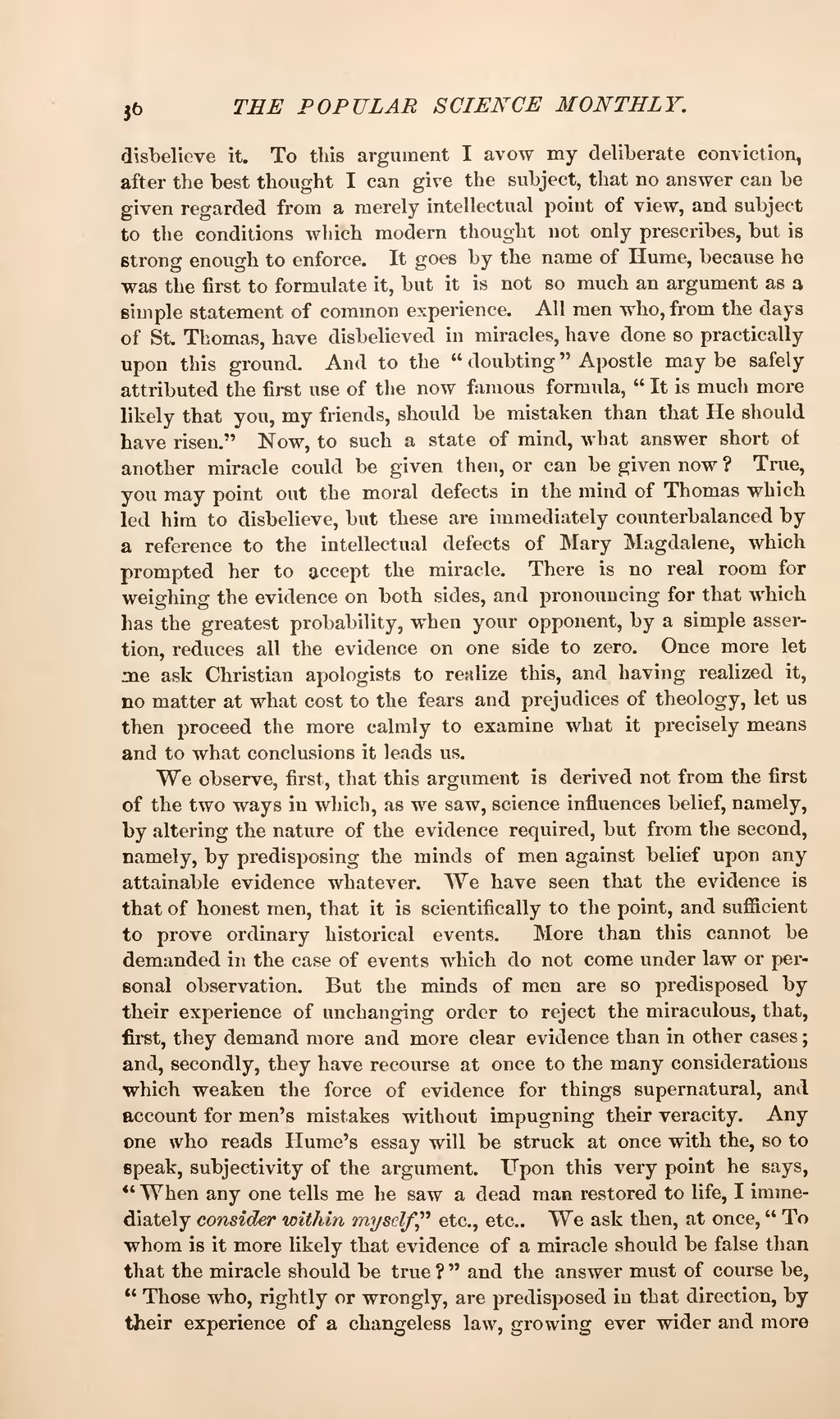disbelieve it. To this argument I avow my deliberate conviction, after the best thought I can give the subject, that no answer can be given regarded from a merely intellectual point of view, and subject to the conditions which modern thought not only prescribes, but is strong enough to enforce. It goes by the name of Hume, because he was the first to formulate it, but it is not so much an argument as a simple statement of common experience. All men who, from the days of St. Thomas, have disbelieved in miracles, have done so practically upon this ground. And to the "doubting" Apostle may be safely attributed the first use of the now famous formula, "It is much more likely that you, my friends, should be mistaken than that He should have risen." Now, to such a state of mind, what answer short of another miracle could be given then, or can be given now? True, you may point out the moral defects in the mind of Thomas which led him to disbelieve, but these are immediately counterbalanced by a reference to the intellectual defects of Mary Magdalene, which prompted her to accept the miracle. There is no real room for weighing the evidence on both sides, and pronouncing for that which has the greatest probability, when your opponent, by a simple assertion, reduces all the evidence on one side to zero. Once more let one ask Christian apologists to realize this, and having realized it, no matter at what cost to the fears and prejudices of theology, let us then proceed the more calmly to examine what it precisely means and to what conclusions it leads us.
We observe, first, that this argument is derived not from the first of the two ways in which, as we saw, science influences belief, namely, by altering the nature of the evidence required, but from the second, namely, by predisposing the minds of men against belief upon any attainable evidence whatever. We have seen that the evidence is that of honest men, that it is scientifically to the point, and sufficient to prove ordinary historical events. More than this cannot be demanded in the case of events which do not come under law or personal observation. But the minds of men are so predisposed by their experience of unchanging order to reject the miraculous, that, first, they demand more and more clear evidence than in other cases; and, secondly, they have recourse at once to the many considerations which weaken the force of evidence for things supernatural, and account for men's mistakes without impugning their veracity. Any one who reads Hume's essay will be struck at once with the, so to speak, subjectivity of the argument. Upon this very point he says, "When any one tells me he saw a dead man restored to life, I immediately consider within myself," etc., etc.. We ask then, at once, "To whom is it more likely that evidence of a miracle should be false than that the miracle should be true?" and the answer must of course be, "Those who, rightly or wrongly, are predisposed in that direction, by their experience of a changeless law, growing ever wider and more
